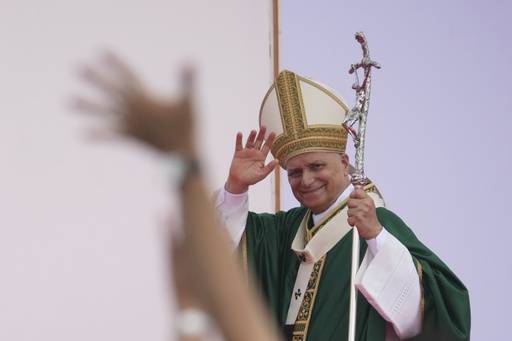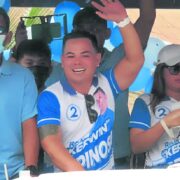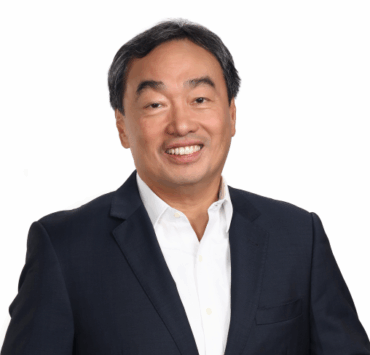A calm papacy that avoids polemics is coming into focus

VATICAN CITY—When Pope Leo XIV surprised tens of thousands of young people at a recent Holy Year celebration with an impromptu popemobile romp around St. Peter’s Square, it almost seemed as if some of the informal spontaneity that characterized Pope Francis’ 12-year papacy had returned to the Vatican.
But the message Leo delivered that night was all his own: In seamless English, Spanish and Italian, Leo told the young people that they were the “salt of the Earth, the light of the world.” He urged them to spread their hope, faith in Christ and their cries of peace wherever they go.
As Robert Prevost marks his 100th day as Pope Leo this weekend, the contours of his pontificate have begun to come into relief, primarily where he shows continuity with Francis and where he signals change. Perhaps the biggest takeaway is that after 12 sometimes turbulent years under Francis, a certain calm and reserve have returned to the papacy.
Leo seems eager above all to avoid polemics or making the papacy about himself, and wants instead to focus on Christ and peace.
“He’s been very direct and forthright … but he’s not doing spontaneous press hits,” said Kevin Hughes, chair of theology and religious studies at Leo’s alma mater, Villanova University. Leo has a different style than Francis, and that has brought relief to many, Hughes said in a telephone interview.
Healing divisions
Leo has gone out of his way in his first 100 days to try to heal divisions that deepened during Francis’ pontificate, offering messages of unity and avoiding controversy at almost every turn. Even his signature issue—confronting the promise and peril posed by artificial intelligence—is something that conservatives and progressives alike agree is important. Francis’ emphasis on caring for the environment and migrants often alienated conservatives.
Closer to home, Leo offered the Holy See bureaucracy a reassuring, conciliatory message after Francis’ occasionally authoritarian style rubbed some in the Vatican the wrong way.
“Popes come and go, but the Curia remains,” Leo told Vatican officials soon after his May 8 election.
Leo, though, has cemented Francis’ environmental legacy by celebrating the first-ever ecologically inspired Mass. He has furthered that legacy by giving the go-ahead for the Vatican to turn a 430-hectare field north of Rome into a vast solar farm that should generate enough electricity to meet Vatican City’s needs and turn it into the world’s first carbon-neutral state.
He has fine-tuned financial transparency regulations that Francis initiated, tweaked some other decrees to give them consistency and logic, and confirmed Francis in deciding to declare one of the 19th century’s most influential saints, John Henry Newman, a “doctor” of the church.
But he hasn’t granted any sit-down, tell-all interviews or made headline-grabbing, off-the-cuff comments like his predecessor did. He hasn’t made any major appointments or taken any big trips.
In marking the 80th anniversary of the U.S. atomic bombings on Hiroshima and Nagasaki last week, he had a chance to match Francis’ novel declaration that the mere possession of nuclear weapons was “immoral.” But he didn’t.
Leo has eased into his new job slowly, deliberately and quietly, almost trying not to draw attention to himself.
At 69, he seems to know that he has time on his side.
Maria Isabel Ibarcena Cuarite, a Peruvian member of a Catholic charismatic group, said it was precisely Leo’s quiet emphasis on church traditions, its sacraments and love of Christ, that drew her and upward of 1 million young people to Rome for a special Jubilee week this month.
Ibarcena said Francis had confused young people like herself with his outreach to LGBTQ+ Catholics and approval of blessings for same-sex couples. Such gestures went beyond what a pope was supposed to do and what the church taught, she thought.
‘Son of Augustine’
Leo, she said, has emphasized that marriage is a sacrament between men and woman.
From his very first appearance on the loggia of St. Peter’s Basilica, Leo has insisted he is first and foremost a “son of St. Augustine. ” It was a reference to the fifth century theological and devotional giant of early Christianity, St. Augustine of Hippo, who inspired the 13th century religious Augustinian order as a community of “mendicant” friars.
Leo joined the Augustinians after graduating from Augustinian-run Villanova, outside Philadelphia, and was twice elected its prior general.
He is also very much a product of the Francis papacy. Francis named Prevost bishop of Chiclayo, Peru, in 2014 and then moved him to head one of the most important Vatican jobs in 2023—vetting bishop nominations. In retrospect, it seems Francis had his eye on Prevost as a possible successor.
Prevost, who hails from Chicago, spent his adult life as a missionary in Peru, eventually becoming bishop of Chiclayo.
“He is the incarnation of the ‘unity of difference,’ because he comes from the center, but he lives in the peripheries,” said Emilce Cuda, secretary of the Pontifical Commission for Latin America.
Cuda said during a recent conference hosted by Georgetown University that Leo encapsulated in “word and gesture” the type of missionary church Francis promoted.
Bergoglio not only made him bishop, he laid the groundwork for Prevost to succeed him as pope, the first North American pope following the first South American.

















